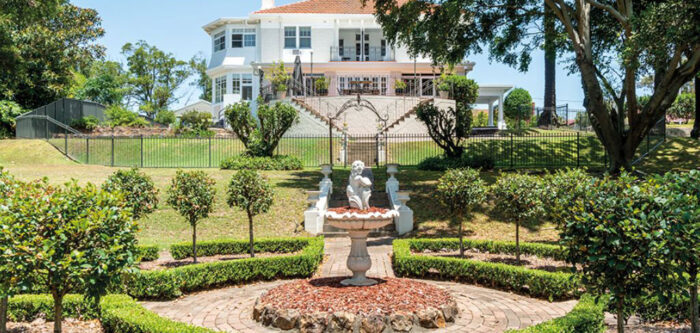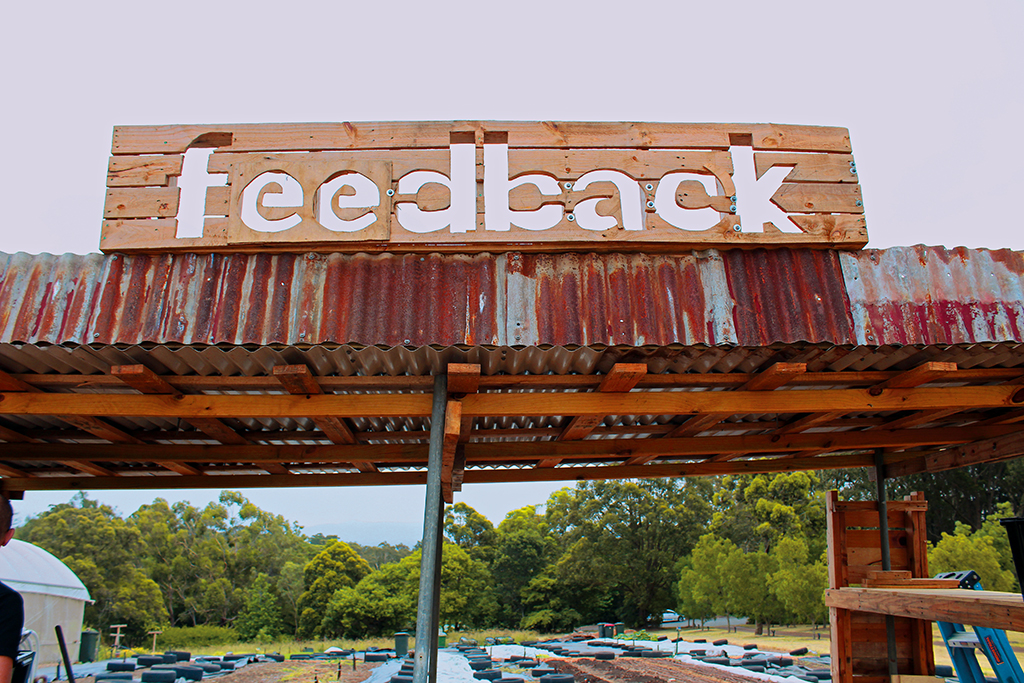
Feedback Organic Recovery
Reducing food waste is something we can all undertake, but David Sivyer is turning the food cycle full circle.
Waste not, want not. Use what you have and never be in need. It’s an old adage that is becoming more and more relevant in the quest to live sustainably and minimise the impact we have on our environment. One man hoping to make a positive change in this way of living is David Sivyer, a founder and owner of Feedback Organic Recovery. His organisation is going from strength to strength as more people across the Hunter are realising their food waste can be used for something more constructive than landfill.
David has developed the Foodcycle bin subscription program and the concept is a simple one: collect food waste from local cafes, homes and businesses, turn it into good quality compost, grow plants and vegetables using the compost at his urban farm, then sell the organic produce at the local Farmers Market. It’s a closed loop on food production and while it’s managed by Feedback Organic, the benefits are for the community.
“I want to change behaviour, not just provide a service,”
David said when Hunter & Coastal Lifestyle Magazine visited the Feedback farm in Cardiff Heights. “We have 28 households and 20 bins now as a part of the Foodcycle initiative. Seraphine Cafe at the Maitland Regional Art Gallery was the first to come on board and now 15 cafes and restaurants across the Hunter are part of the program.” Learning the craft of creating compost from Purple Pear Farm, David successfully applied for funding from the Hunter Research Foundation to kick off his grand design back in 2016.
Feedback began at a small farm in Maryville, before moving to the current location in Cardiff Heights. The land has been lent to Feedback for its main operations and they have since installed 34 garden beds, as well as a greenhouse, bee hives, seedling shed and of course, the composting area. David has a small, dedicated team who help with the weekly bin collections, gardening and growing their produce.
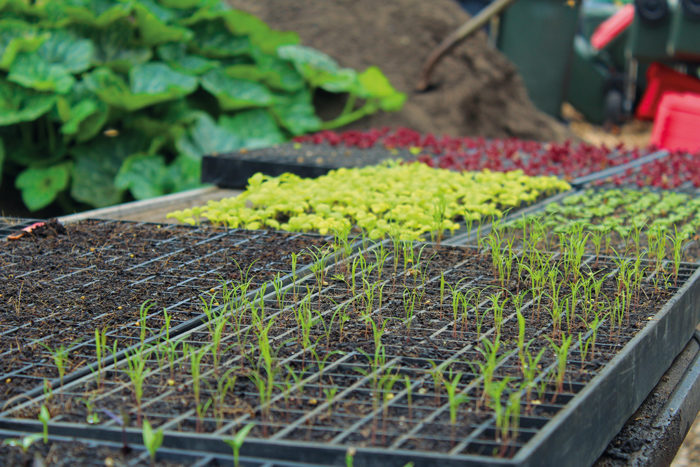
The harvest is ready for the Farmers Market 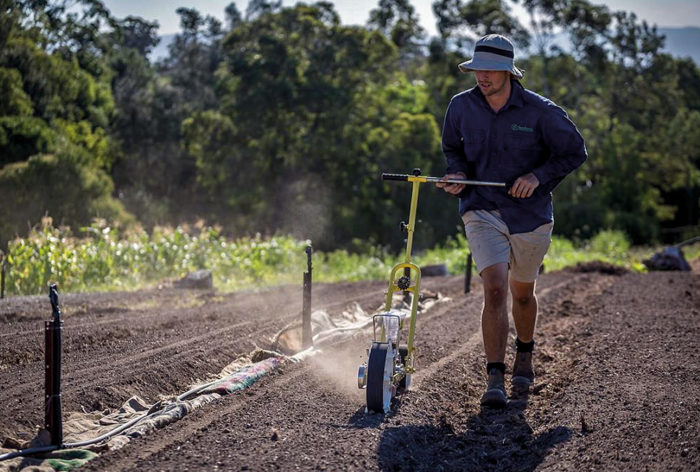
David Sivyer started Feedback Organic Recovery in 2016. 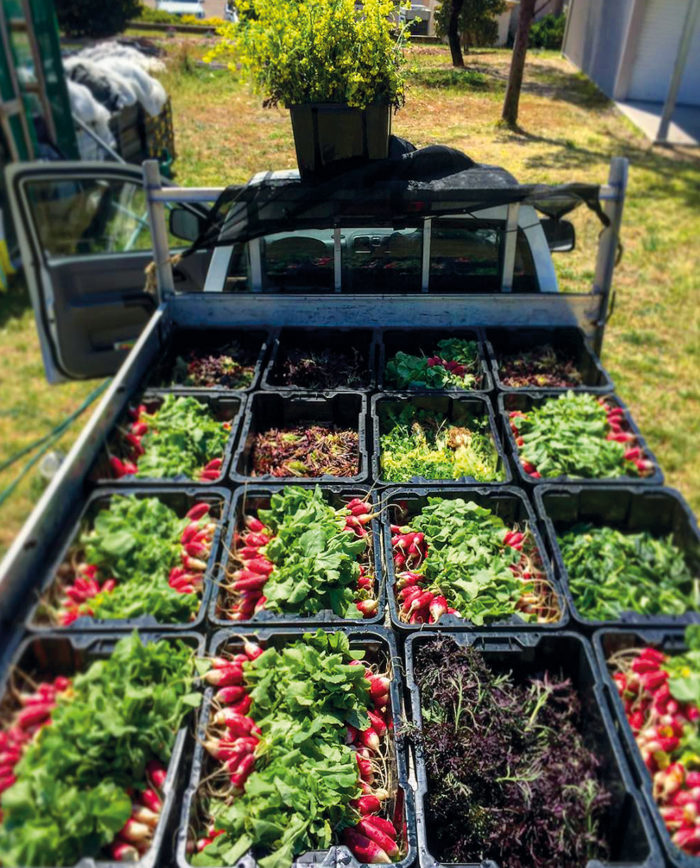
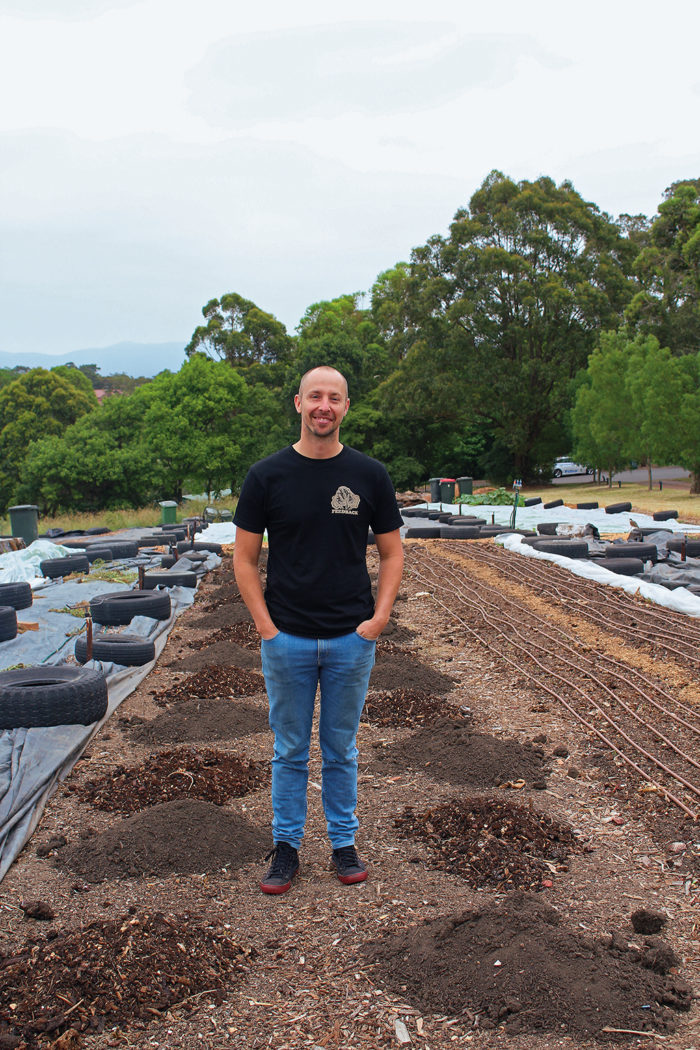
Founder of Feedback Organic Recovery David Sivyer on site.
“We experimented with crops and tested around 20, then settled on five: coriander, radish, carrots, tatsoi and mesclun,” David said. All crops are grown in that glorious compost and in a completely organic environment. The produce is harvested on Saturdays and then sold at the Newcastle City Farmers Market each Sunday. You can’t get much fresher or more local.
The Foodcycle waste bins are sponsored by cafes and restaurants, or households can host a bin, which is generally shared by four homes, then collected by Feedback Organic every week. Subscriptions are priced at $4.30 per week and a portion of that cost goes towards expanding the program, including launching the bins in Sydney this year. The other arm of Feedback Organic Recovery is the 1-Hour Farmer program. David runs one hour sessions at the farm on Saturdays to teach the basics of urban farming. From weeding, to pruning, to seeding, trapping, harvesting and more, keen farmers are welcome to come along and get their hands dirty while learning key skills.
Planting the seeds
“We get new people every week, but also a lot of regulars. It’s such a worthy lifestyle and we have a great time.” While David feels “this is the year where we’ve found our groove with the Foodcycle bins,” reducing food waste is a seed that is sprouting in schools and businesses as well. 2019 saw the first school get involved with the program and implement bins on campus.
“St Therese’s Primary School is now involved with mini waste food bins; every classroom has a bin. I’m also working with another two dozen schools who are interested in coming on board.” Teaching children to reduce waste and showing them how their food is grown is something
David cares strongly about and he’s started excursions to the Feedback farm for the little ones so they can understand the process and effort it takes to grow our food. The year ahead looks like a turning point for David, with Feedback teaming up with Newcastle University and BioPak for different composting trials. “We have grown fifteen tonnes of food in the past three years, with 2.5 tonnes of waste composted each year,” David said. “We are aiming for 330 tonnes in 2020.”
Interested in learning more? Visit feedbackorganic.com.au for details.
Story Judith Whitfield
Read more great stories in the Autumn issue of Hunter&Coastal Lifestyle Magazine.

